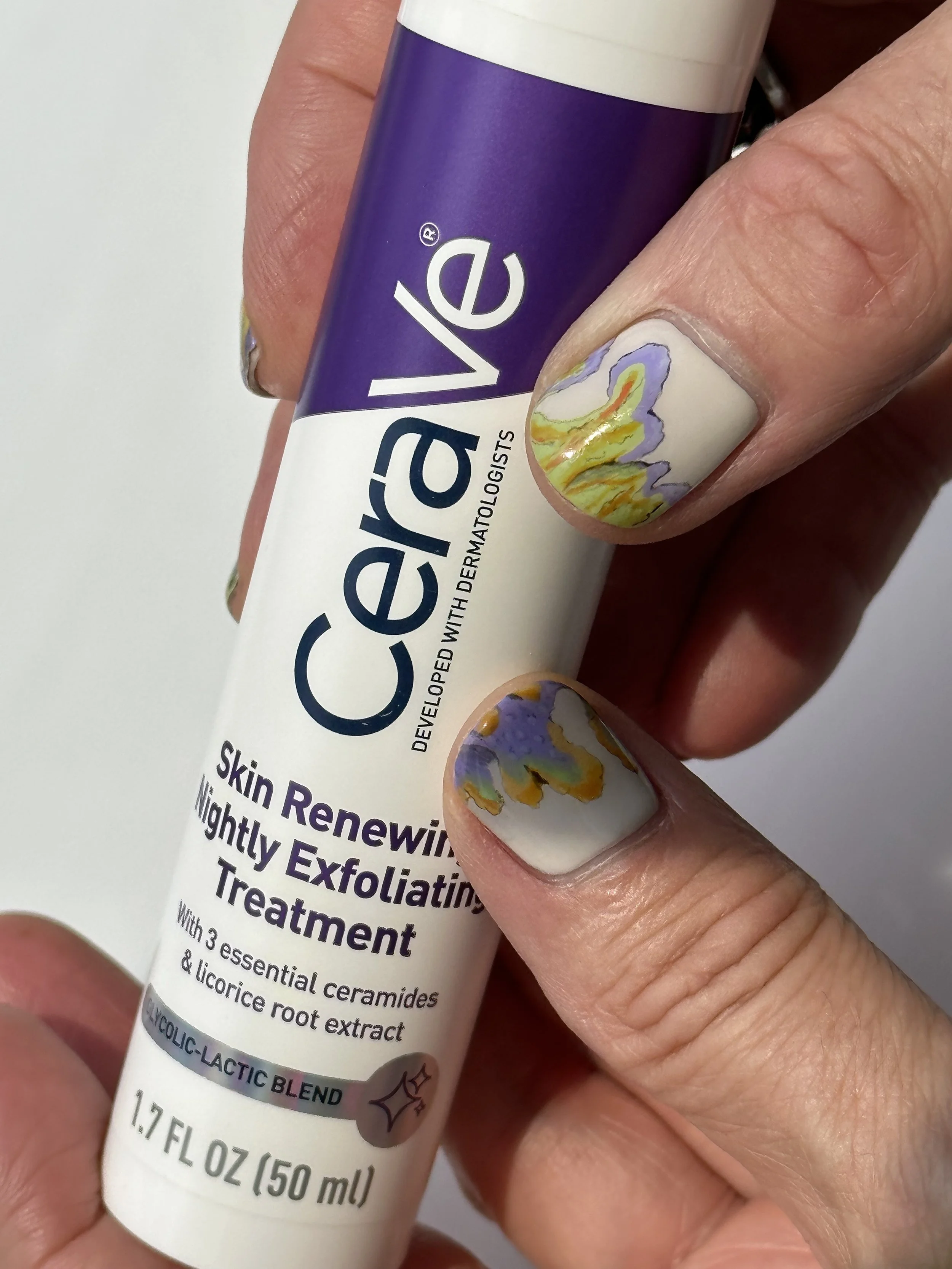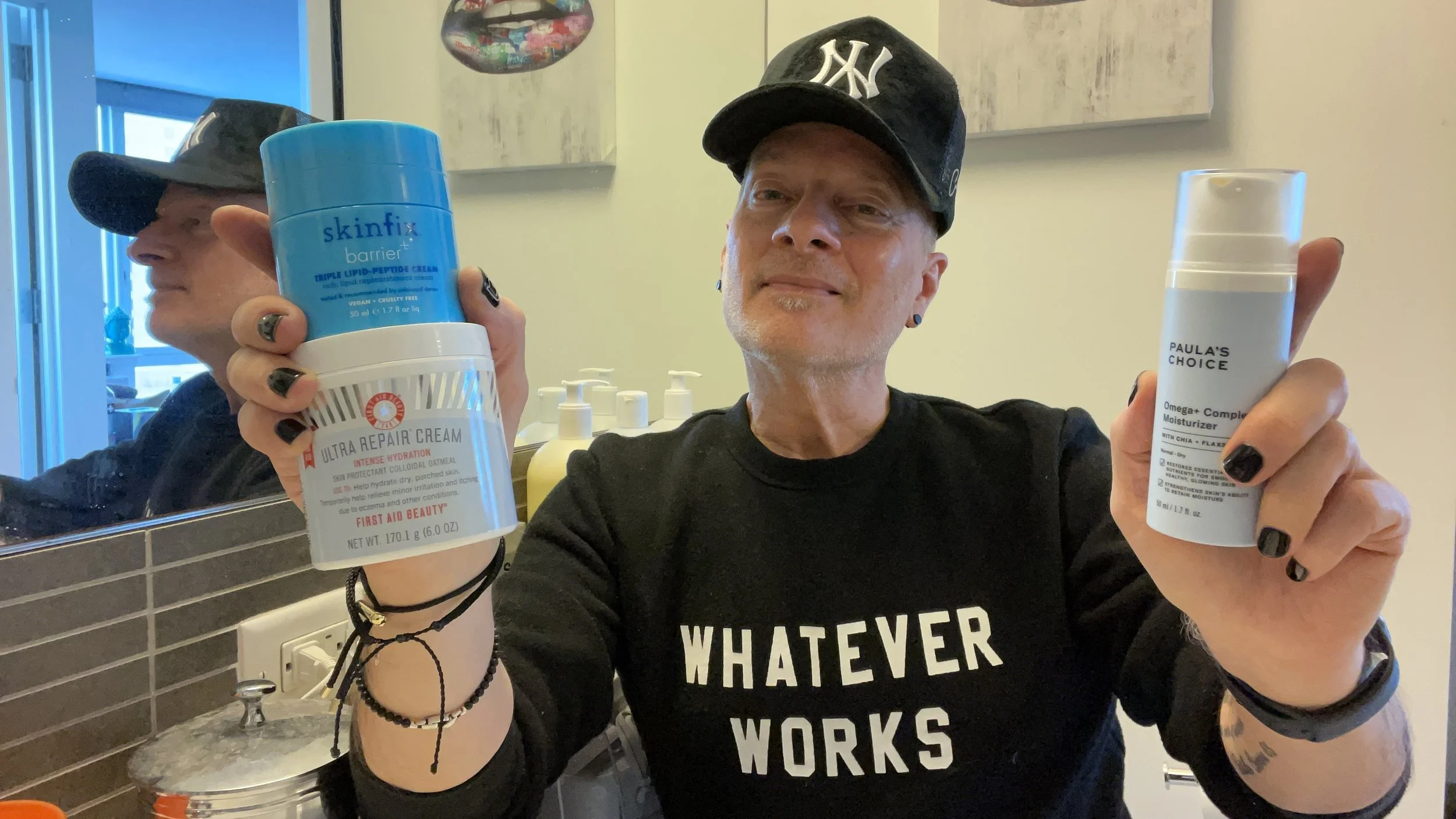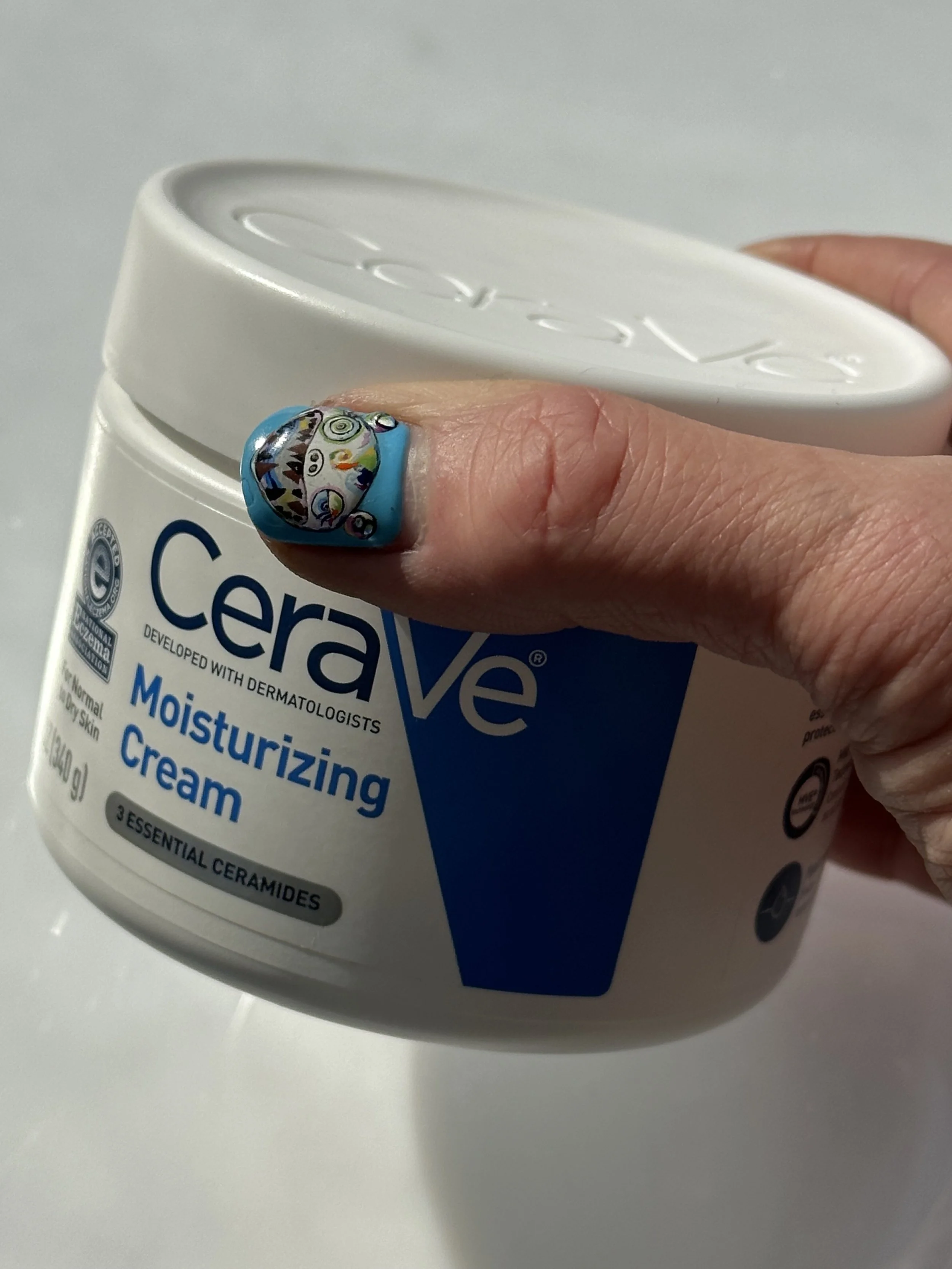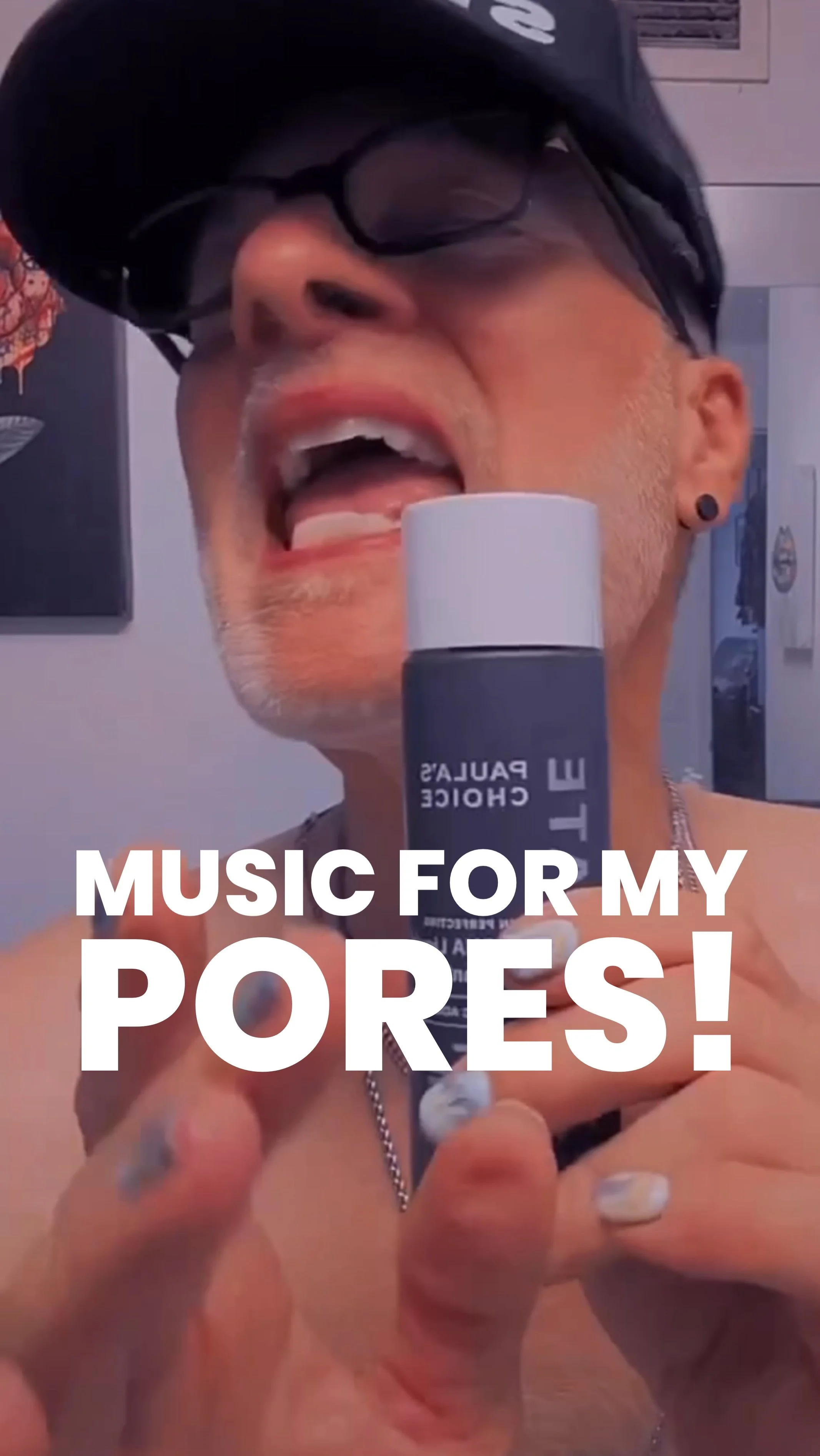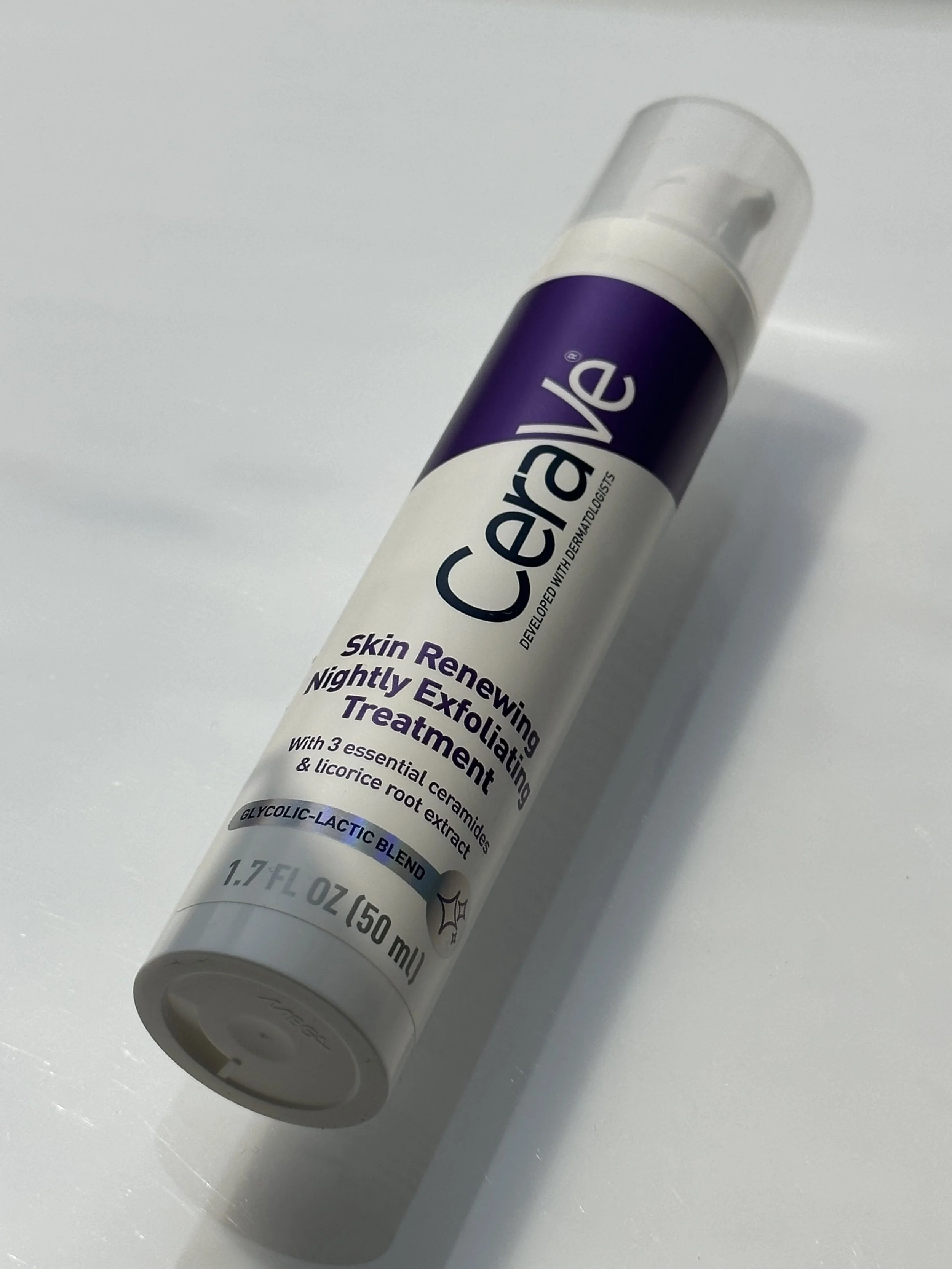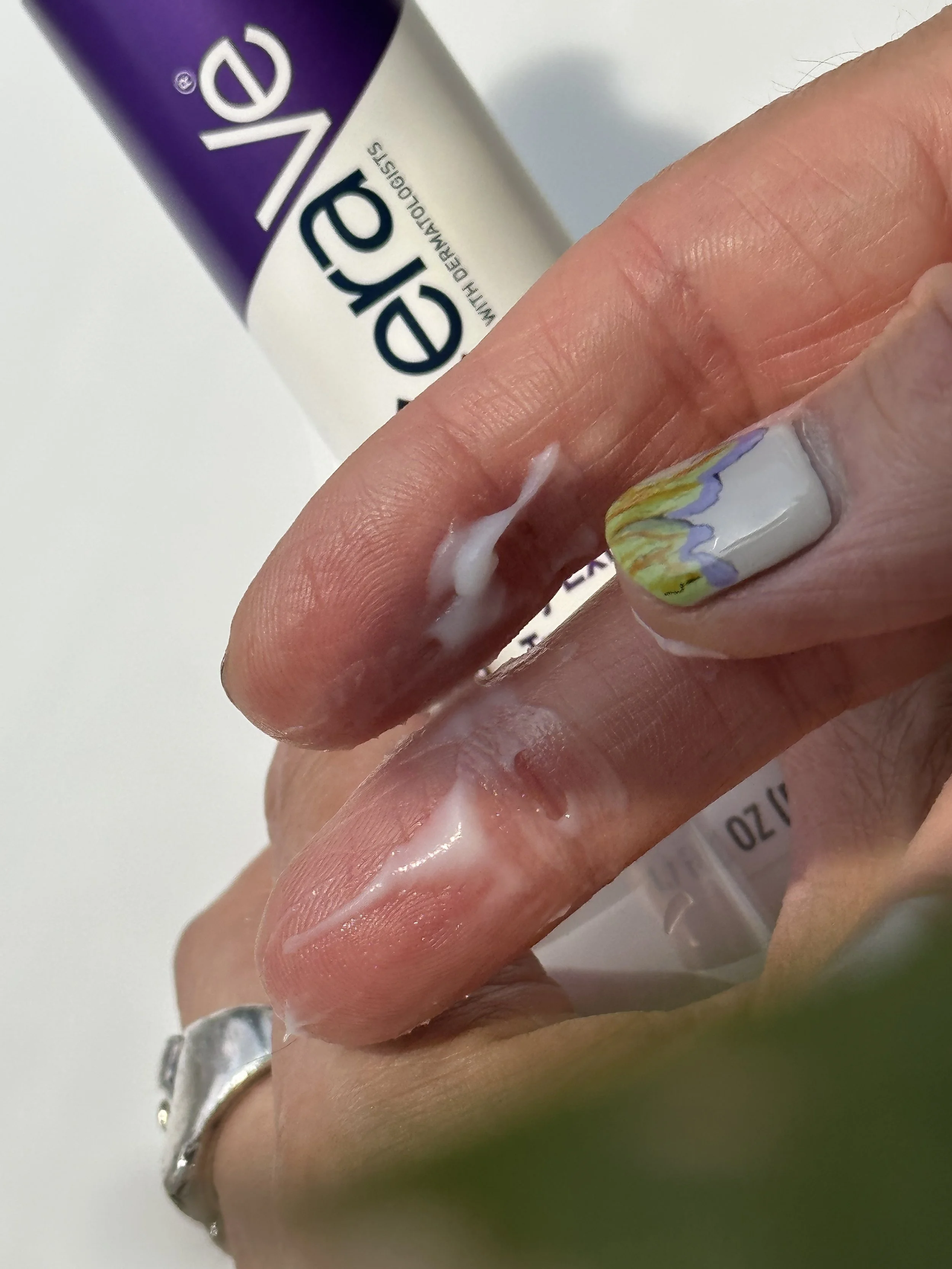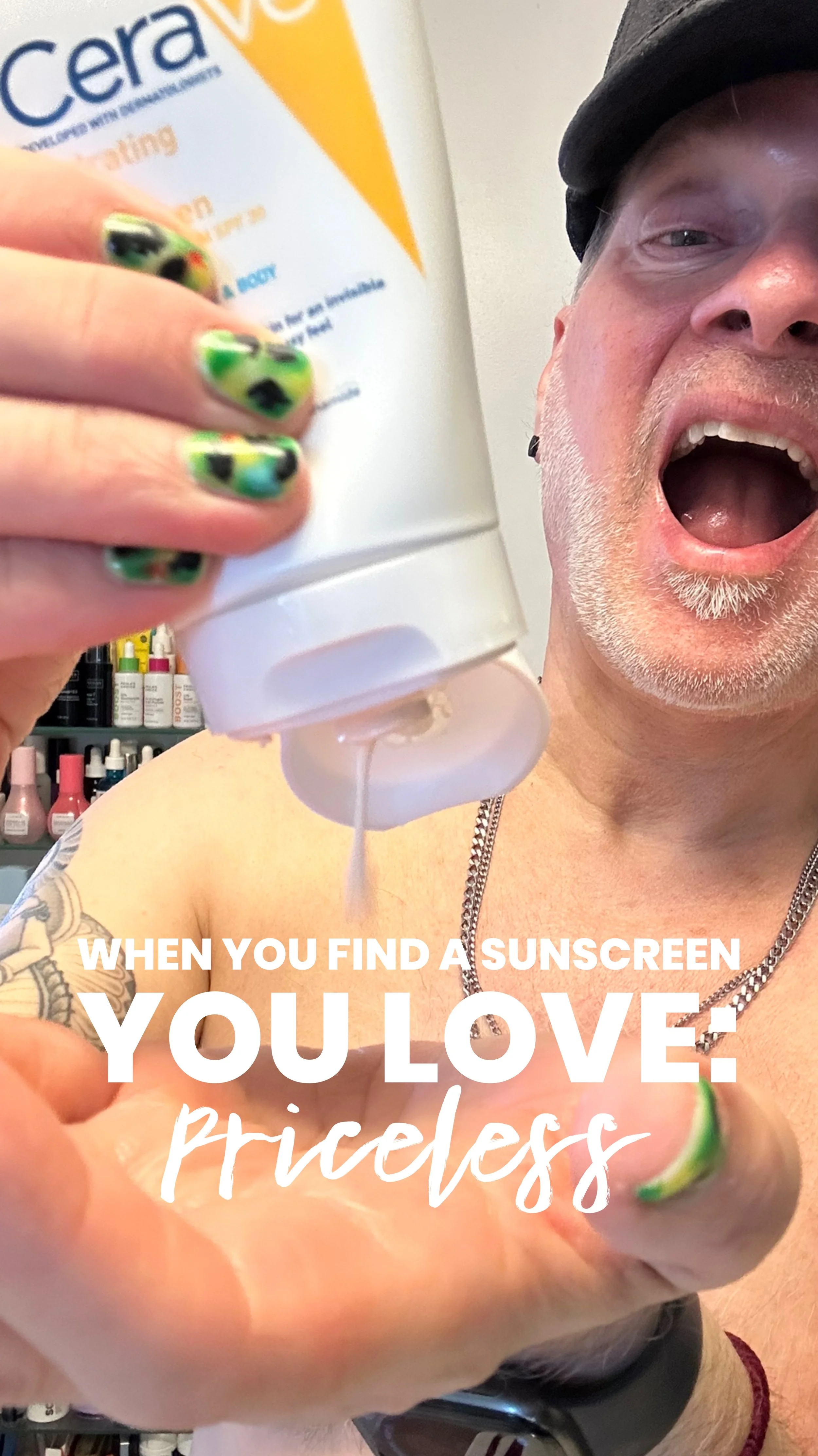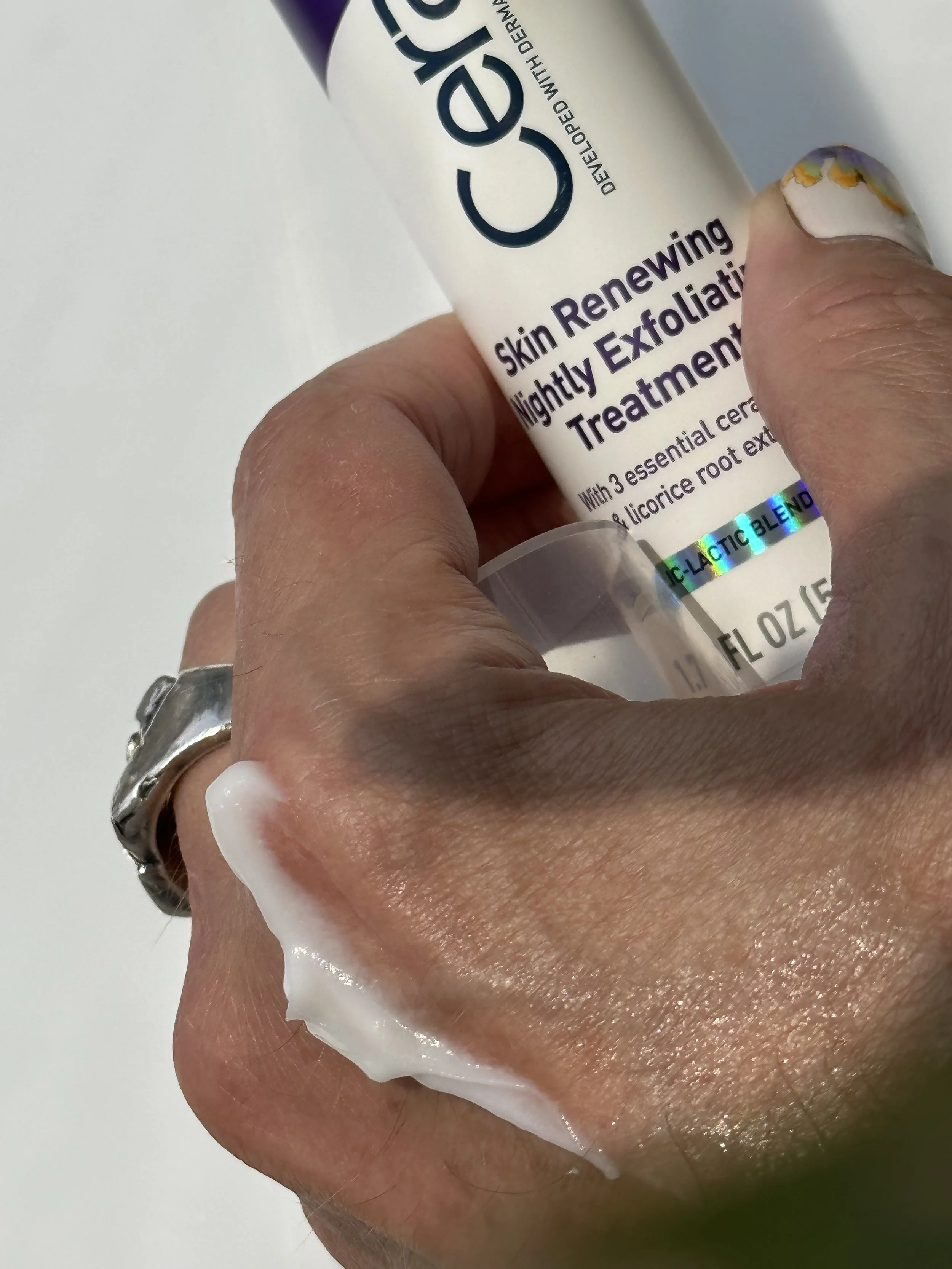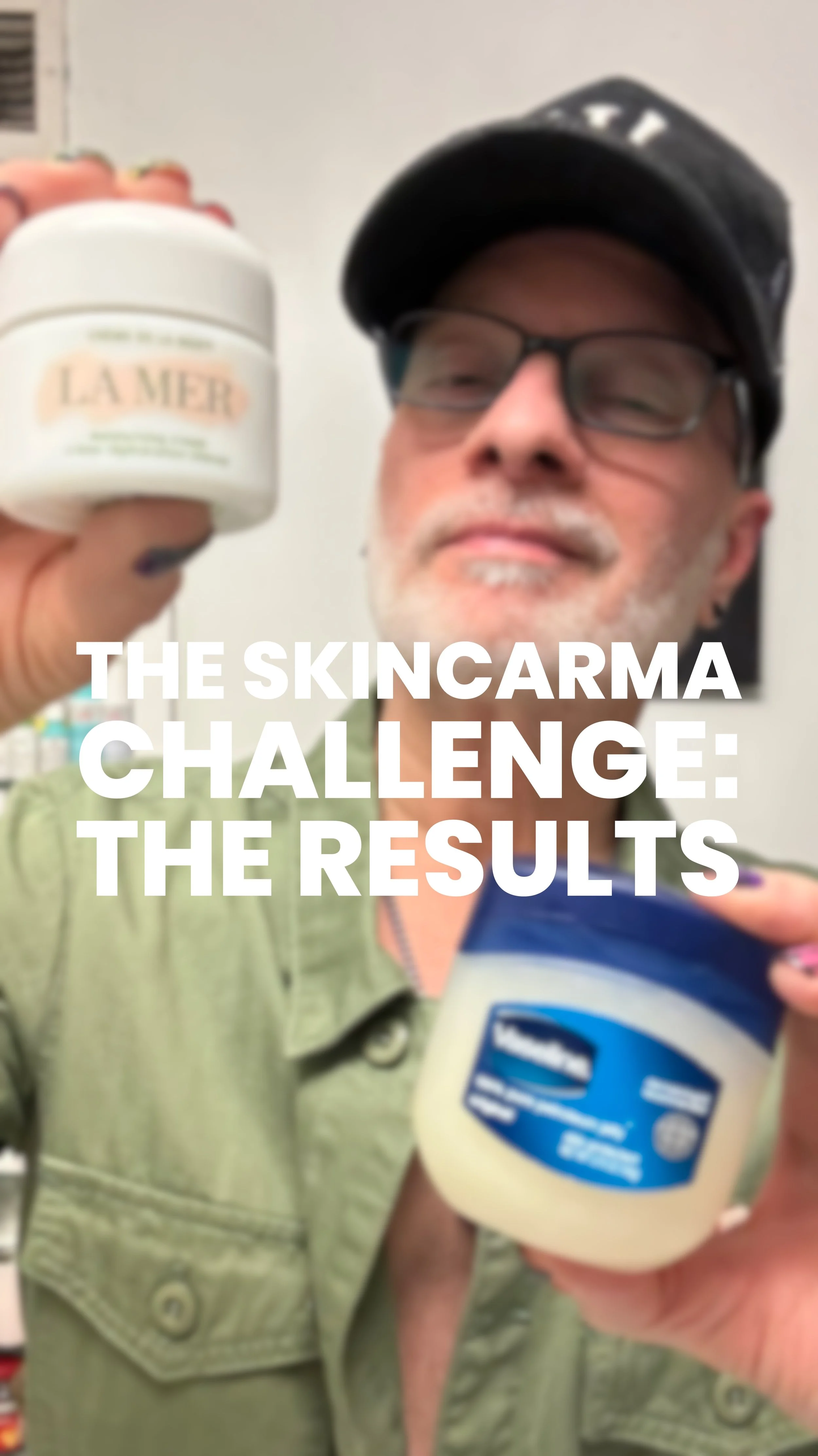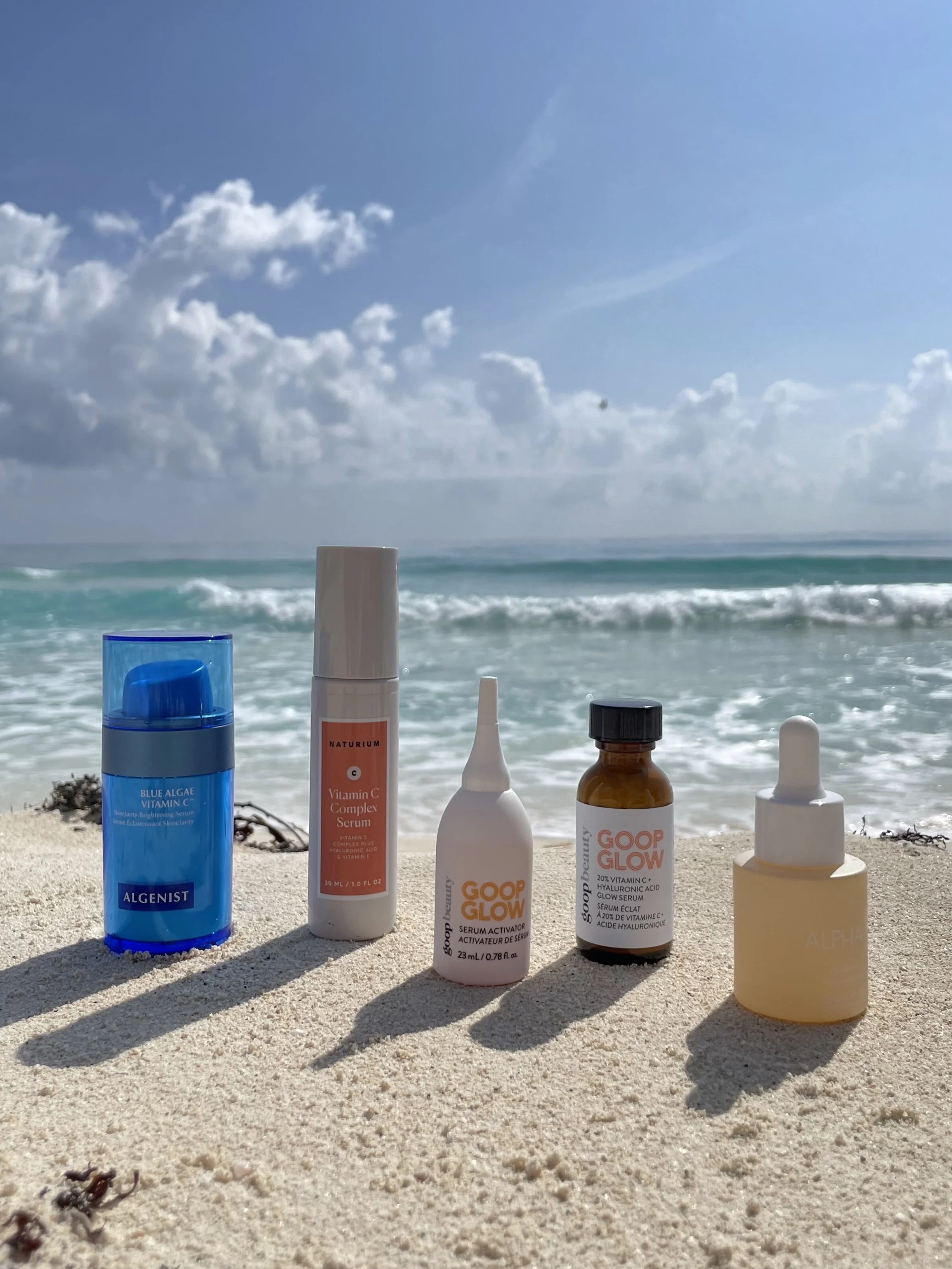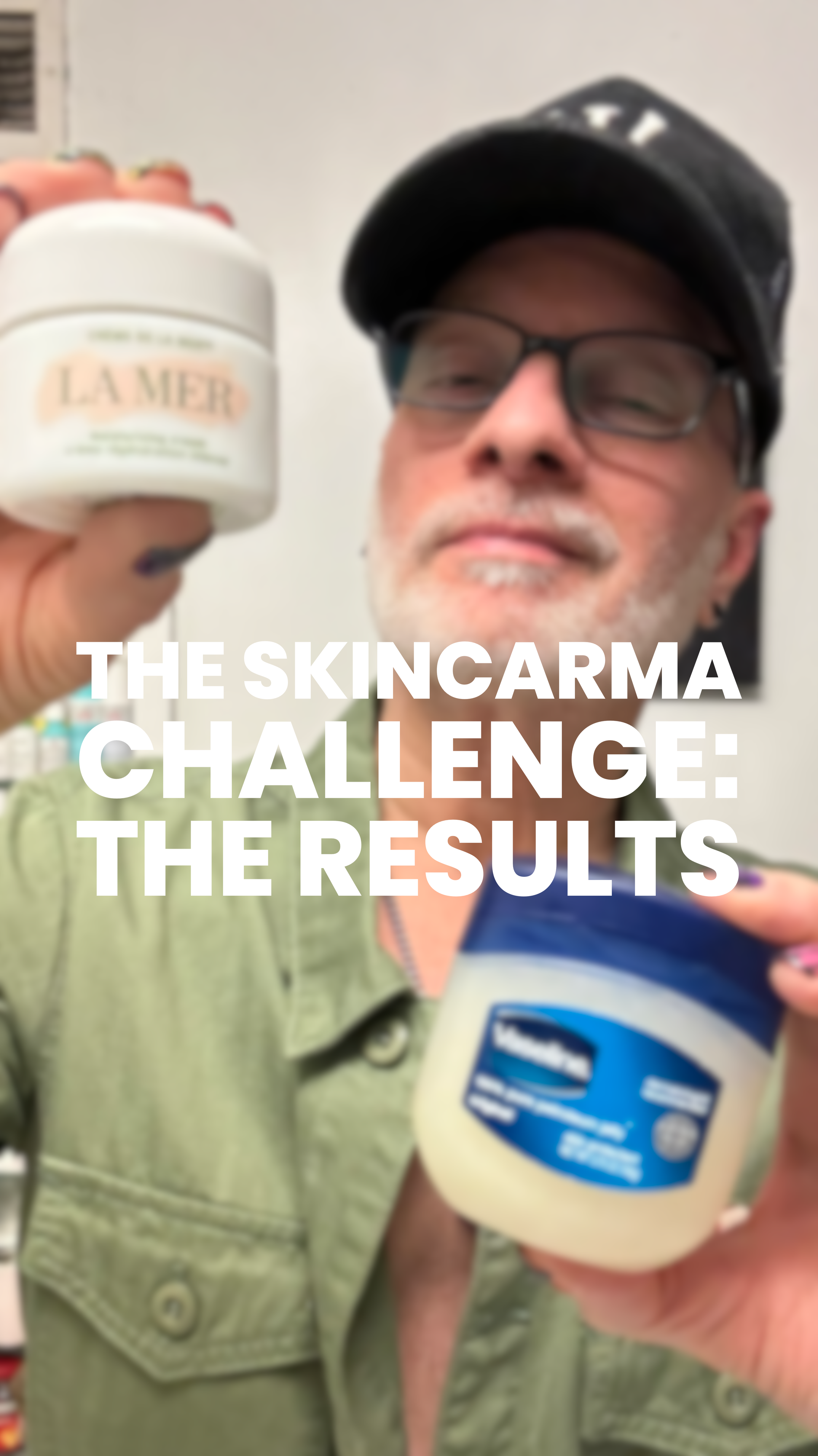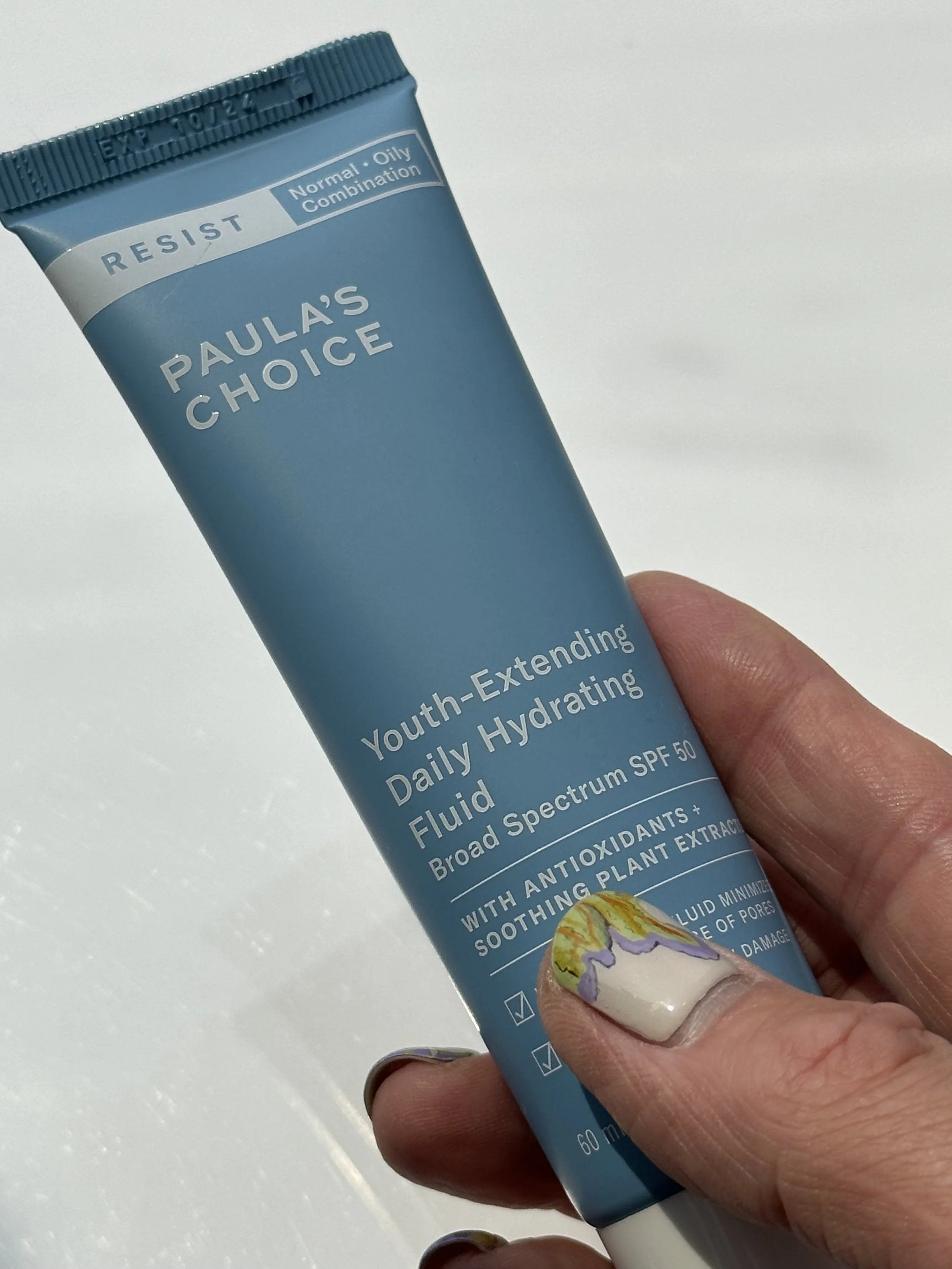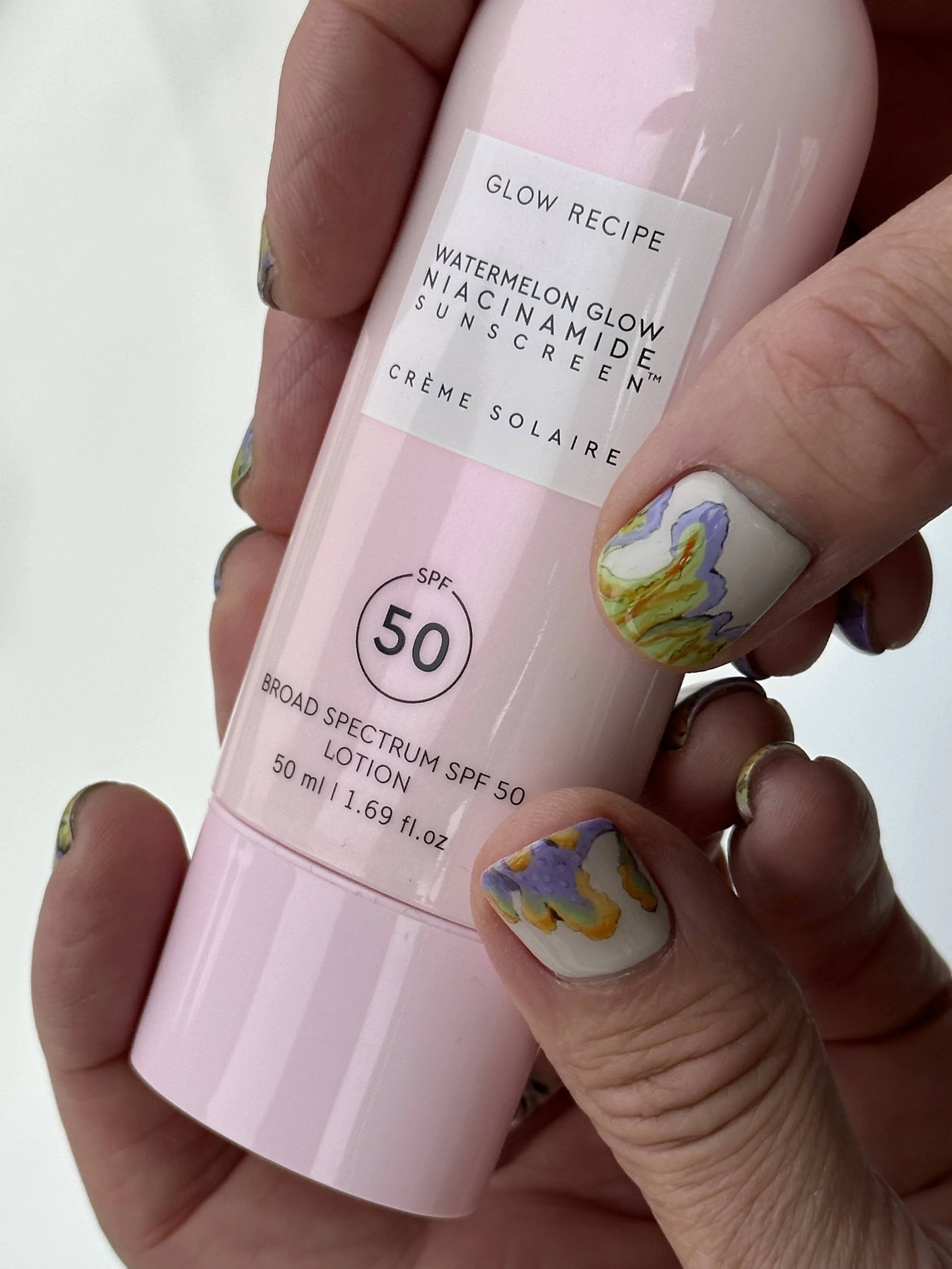PRODUCT REVIEW: CERAVE SKIN RENEWING NIGHTLY EXFOLIATING TREATMENT - Is it okay to exfoliate sensitive skin? What happens if you don't exfoliate?
CERAVE SKIN RENEWING NIGHTLY EXFOLIATING TREATMENT
I’m ngl I have a deep, enduring love-hate relationship with Glycolic Acid. There are very few skincare actives that have the potential to irritate my skin like the most powerful of the class of AHAs.
Even Retinol doesn’t scare me like Glycolic Acid does. Your skin gets acclimated to Retinol over time – becomes more tolerant of higher and higher concentrations as it adapts.
I’m living proof of that! My skin couldn’t handle even a low concentration of Retinol at first. I stuck with it and built up my skin’s tolerance. Today, I’m a dedicated Retinol user and can benefit from even the most advanced face creams with Retinol and the best Retinol face serums for deep wrinkles and other forms of advanced skin aging.
I’ve neither heard of nor experienced anything similar with Glycolic Acid. Does skin even get acclimated to Glycolic Acid the same way it does with Retinol? I don’t believe so. Sure beauty marketers want you to believe your skin gets used to it so you can use more of their products. They love to put things like this in their packaging directions: Start out using once a week and build up your skin’s tolerance, working up to every day. In fact, a new acid treatment I’ve been testing out recommends this exactly: Begin by using every other day, noting skin’s response, and building up to daily use.
Build up to daily use? It just doesn’t work that way with harsh acids. And even if it did, why on Earth would you want or need to use a really potent Glycolic Acid treatment every day? That’s a recipe for disaster – or for sensitizing your skin and decreasing tolerance.
But if there’s one brand I trust with not sensitizing my skin with an exfoliating cream, it’s CeraVe. And I’ve been test-driving the CeraVe Skin Renewing Nightly Exfoliating Treatment over the last several weeks.
BEST FACE CREAMS FOR DRY SKIN
I'll get into more detail on CeraVe’s Skin Renewing Nightly Exfoliating Treatment in a minute. But first, I think it’s important to understand the benefits and drawbacks of acid exfoliation – and how often you should even be using an exfoliating cream with Glycolic Acid or other AHAs.
Have you ever asked yourself this basic question: How often should you exfoliate your face?
According to the science, health and wellness resource Healthline, it really depends on what your skin needs. And, your skin needs are directly linked to your skin type. Specifically, the answer to how often you should exfoliate depends on how dry or oily you are.
So the packaging directions on even the best face exfoliator with Glycolic Acid need to be more specific than “two to three times per week” or “build up your skin’s tolerance to every day”. Neither is the correct answer for every user.
What is? Well, as a rule, for dry and sensitive skin, the recommendation is once per week. For oily, acne-prone and combination skin, exfoliating up to thrice weekly is appropriate.
How often should you exfoliate your face?
DRY AND SENSITIVE SKIN: 1x per week
OILY, ACNE-PRONE & COMBINATION SKIN: up to 3x per week
Source: Healthline
PRODUCT REVIEW: CERAVE MOISTURIZING CREAM & DAILY MOISTURIZING FACE LOTION
Now that we have the frequency of use answered, the question becomes, Which acids are best for exfoliating?
Whether in or out of the dermatologist office, the best acids for skin exfoliation are alpha hydroxy acids (AHAs) and beta hydroxy acids (BHAs). When it comes to exfoliating the skin, several specific acids have proven to be most effective.
One of the most popular exfoliating acids is the strongest of the AHAs, Glycolic Acid. It’s well-known for its ability to penetrate deep into the skin barrier to loosen and dissolve dead skin cells, promoting cell turnover and ultimately brightening the complexion.
Another AHA, Lactic Acid, derived from milk, is also an excellent exfoliator as it gently dissolves dead skin cells and simultaneously hydrates the skin. And Mandelic Acid, derived from bitter almonds and the gentlest of the AHAs, is a mild exfoliant that is suitable for all skin types – even those with sensitive skin.
Another acid that excels at exfoliation is Salicylic Acid, the most common of the class of BHAs. Its unique molecular structure allows it to penetrate the pores and dissolve trapped oil, making it an ideal choice for those with acne-prone or oily skin. Personally, I rely on the exfoliating acid for daily pore maintenance. And IMO the best Salicylic Acid treatment is the Paula’s Choice Skin Perfecting 2% BHA Liquid Exfoliant. I’m obsessed with it and have reviewed it on the blog here.
Ultimately, the right acid for exfoliating skin depends on your skin concerns and skin sensitivity; but each of these acids has consistently shown impressive exfoliating abilities.
AN ESSENTIAL PART OF MY DAILY PORE MAINTENANCE
Before I get into my detailed CeraVe Skin Renewing Nightly Exfoliating Treatment product review just below, I wanted to answer some of the most frequently asked questions about exfoliating acids and sensitive skin, in particular…
1. Is it okay to exfoliate sensitive skin?
Yes, all skin can benefit from exfoliation – even sensitive skin. However, the trick with sensitive skin is that it requires extra caution, gentle methods and products in order to avoid irritation or further sensitization.
According to an article titled How to Exfoliate Sensitive Skin Safely on the online science, health and wellness resource Healthline, individuals with sensitive skin should opt for mild chemical exfoliation rather than harsh physical exfoliation with products like face scrubs.
Scrubs made with abrasive particles like crushed shells and nuts scratch the skin barrier and cause micro-tears that can lead to irritation and even infection. Not only are these types of exfoliating products potentially irritating to sensitive skin types, they’re detrimental to your skin health no matter your skin type. Physical scrubs should be avoided.
Gentle chemical exfoliators like AHAs (Alpha-Hydroxy Acids) can be beneficial for sensitive skin. Among the most gentle AHAs are Lactic Acid and Mandelic Acid. PHAs, or polyhydroxy acids, like Gluconolactone are also mild yet effective exfoliants.
The American Academy of Dermatology in an article titled How to safely exfoliate at home, suggests using a washcloth and a mild chemical exfoliator instead of aggressive scrubbing through physical, or mechanical, exfoliation. This can help prevent irritation while still exfoliating the skin.
Remember, everyone’s skin is unique, and what works for you may not work for someone else. It’s always best to consult with a dermatologist or skincare professional for personalized advice tailored to your specific skin type and concerns.
Sources: American Academy of Dermatology - How to safely exfoliate at home; Healthline - How to Exfoliate Sensitive Skin Safely; Byrdie - Exfoliation for All Skin Types: What to Use for Sensitive and Oily Skin
2. What happens if you don't exfoliate?
First, it’s important to understand that the skin is much like a self-cleaning oven. One of its functions is to shed dead surface skin cells as they rise to the surface of your skin. However, while it does this quite effectively, oftentimes these dead skin cells can clog pores leading to skin irritation and acne breakouts.
According to an article in Healthline, if dead skin cells are not regularly removed through exfoliation, they can build up on the skin’s surface, leading to a dull and rough complexion. Chemical exfoliation has the benefit of removing dead surface skin cells to instantly brighten and clarify the complexion.
SELF magazine explains that without exfoliation, skincare products may not penetrate the skin effectively. Exfoliation helps to remove the barrier of dead skin cells, allowing the active ingredients in your skincare products to better absorb into your skin.
New York Dermatologist Dr. Howard Sobel, in an article on CNN Underscored, states that not exfoliating can contribute to the formation of conditions like keratosis pilaris, also known as “chicken skin,” which manifests as small, rough bumps on the skin. Regular exfoliation can help to prevent bumps from forming in the first place.
Remember, exfoliation should be done with caution and tailored to your skin type. Over-exfoliation or using overly harsh exfoliants can also have negative effects on the skin.
Sources: CNN Underscored - How to get rid of keratosis pilaris (Chicken skin); Healthline - Meaning of Exfoliating: What Is It, Why You Should, and How to Start; SELF - Everyone Please Relax About Face Scrubs.
3. Is Glycolic Acid too harsh for sensitive skin?
Glycolic Acid can certainly be too harsh for sensitive skin if used incorrectly or in high concentrations. While Glycolic Acid can be beneficial for many skin types, including oily and acne-prone skin, it may not be suitable for sensitive skin due to its potential to cause irritation.
According to an article by the Mayo Clinic, AHAs like Glycolic Acid can cause dryness, scaling, and inflammation in some individuals, particularly those with sensitive skin. Therefore, it is important for people with sensitive skin to approach using Glycolic Acid with caution.
It’s advisable to start with lower concentrations and gradually introduce the product into your skincare routine if little to no irritation is seen. Consulting with a dermatologist is recommended to determine the best skincare approach for those with sensitive skin.
Sources: Mayo Clinic - Nonprescription acne treatment: Which products work best?
4. Which acid is best for sensitive skin?
Determining the best acid for sensitive skin requires careful consideration, as sensitivity levels can vary among individuals. It is generally recommended to opt for milder acids that provide gentle exfoliation.
Among the more gentle acids in the class of alpha hydroxy exfoliating acids are Mandelic Acid and Lactic Acid. While Mandelic Acid can be effective over the long-term, this extremely gentle acid renders minimal results. If your skin is highly sensitive or sensitized, Mandelic Acid can be a solid option for you.
The other acid that is often considered suitable for sensitive skin is Lactic Acid. Like Mandelic Acid and Glycolic Acid, Lactic Acid is an alpha-hydroxy acid (AHA). It is well-known for its hydrating and exfoliating properties.
How does Lactic Acid work for sensitive skin? Well, it helps to gently dissolve dead skin cells without causing excessive irritation or dryness. However, it's still important to patch test any acid on a small area of the skin to ensure it doesn’t cause adverse reactions.
Source: Paula’s Choice - Lactic Acid - What It Is, Benefits & How to Use It
5. Product Review
CeraVe Skin Renewing Nightly Exfoliating Treatment Review
As I alluded to earlier, I trust CeraVe to take proper care of sensitive skin. After all, the brand was founded on a sensitivity for the unique needs of a sensitive skin type. There are a select few skincare brands in the marketplace that have what I consider a sufficient concern for skin sensitivity.
All skincare brands and product formulators I’ve worked with believe that they sufficiently address sensitive skin through testing that allows them to embrace statements like “safe for sensitive skin.” That’s really nothing more than checking the box.
Safe for sensitive skin and made for sensitive skin are worlds apart. They’re not the same thing.
In addition to CeraVe, another made-for-sensitive-skin brand is First Aid Beauty. I’m a huge fan of the FAB brand and have featured several of their products on the blog. Among my favorite products is the First Aid Beauty Ultra Repair Cream. In fact, I’m confident that it’s one of the best face creams for sensitive skin. You can catch my review of it on the blog here.
Of course, the original “best face cream for sensitive skin” is the OG: CeraVe’s Moisturizing Cream. One of the brand’s three initial products at launch in 2006, the classic Moisturizing Cream is nearly unrivaled as perhaps the best sensitive skin moisturizer. I recently published my CeraVe Moisturizing Cream product review on the blog; you can catch it here.
No skincare brand is perfect. And more than a few independent brands have lost their way when acquired by a big beauty conglomerate. CeraVe was purchased by L’Oreal in 2017 and while the brand has continued to corner the market for sensitive skin, there have been missteps as L’Oreal has pushed the brand’s growth through product innovation.
Notably, the new CeraVe Skin Renewing Vitamin C Serum is far from the best Vitamin C serum for sensitive skin. In fact, with its high level of denatured alcohol, I don’t think it’s even appropriate for sensitive skin. If you’re curious, catch my review of it here.
And even while I’m a huge fan of CeraVe’s Moisturizing Cream, it’s that recent experience of the brand’s Vitamin C serum that made me wary of the Skin Renewing Nightly Exfoliating Treatment.
Introduced almost two years ago, I was concerned that the brand hasn’t struck a balance between more aggressive skincare products and the essential needs of sensitive skins. And one of the most challenging products for sensitive skin is a Glycolic Acid exfoliating cream.
DO YOU LOVE YOUR SUNSCREEN?
In addition to concerns rooted in my experience of their Vitamin C serum is CeraVe’s recommendation to use the Skin Renewing Nightly Exfoliating Treatment every day – make that every night. It’s even in the product name! That’s just too much for anyone’s skin, let alone a sensitive skin type. Come on CeraVe!
But I have to say that my expectations were exceeded. I actually like CeraVe’s Skin Renewing Nightly Exfoliating Treatment and, importantly, experienced no signs of irritation – even when using it on consecutive nights as recommended.
TBH I don’t have sensitive skin. But I do have a sensitivity to Glycolic Acid. It’s not uncommon for me to have an adverse reaction, most commonly in the form of temporary redness and irritation. But from time to time, a leave-on exfoliating treatment with Glycolic Acid can sensitize my skin, leaving me in a skincare rut for a few days.
With a 5% blend of both Glycolic and Lactic Acids, the CeraVe Skin Renewing Nightly Exfoliating Treatment is a somewhat mild exfoliating cream. The brand included, as expected, its signature triple-ceramide complex (Ceramide Np, Ceramide Ap, and Ceramide Eop) found in nearly all of its products. These help buffer against irritation. There are also several hydrating humectants that help to keep skin hydrated and prevent the drying effect common to alpha hydroxy acids.
If you have sensitive skin, the Skin Renewing Nightly Exfoliating Treatment may be the perfect addition to your routine to refresh your complexion and get your glow going. Just don’t use it daily, as directed.
6. Pros & Cons
What I like about it: The CeraVe Skin Renewing Nightly Exfoliating Treatment is among the best exfoliating creams with Glycolic Acid for sensitive skin that I’ve come across. I think the brand really struck the right balance with this one. For an acid treatment, it’s relatively tame – exactly what sensitive skin requires.
What I don’t like about it: I’m not a fan of daily aggressive exfoliation and I disagree with the brand’s recommendation to use this product nightly. It’s even in the name!
Who it’s for: All skin types, even sensitive skins.
SHOP THE BLOG: Want to try it for yourself? Purchase the CeraVe Skin Renewing Nightly Exfoliating Treatment for $31.99 here.
The Ingredient List of the CeraVe Skin Renewing Nightly Exfoliating Treatment:
 sii|h 0 0, Cetearyl Ethylhexanoate emo, Cetearyl Alcohol emo|vc|emu|surf 1 2, Dimethicone emo 0 1, Glycolic Acid
sii|h 0 0, Cetearyl Ethylhexanoate emo, Cetearyl Alcohol emo|vc|emu|surf 1 2, Dimethicone emo 0 1, Glycolic Acid  exf|buff, Lactic Acid
exf|buff, Lactic Acid  exf|h|buff, Sodium Hydroxide buff, Dipotassium Glycyrrhizate
exf|h|buff, Sodium Hydroxide buff, Dipotassium Glycyrrhizate  so|h, Polyacrylate Crosspolymer-6 vc, Ceramide NP
so|h, Polyacrylate Crosspolymer-6 vc, Ceramide NP  sii, Ceramide AP
sii, Ceramide AP  sii, Ceramide EOP
sii, Ceramide EOP  sii, Carbomer vc 0 1, Cetearyl Glucoside emu|surf, Behentrimonium Methosulfate surf, Triethyl Citrate perf, Sodium Hyaluronate
sii, Carbomer vc 0 1, Cetearyl Glucoside emu|surf, Behentrimonium Methosulfate surf, Triethyl Citrate perf, Sodium Hyaluronate  sii|h 0 0, Sodium Lauroyl Lactylate emu, Cholesterol
sii|h 0 0, Sodium Lauroyl Lactylate emu, Cholesterol  sii|emo 0 0, Phenoxyethanol pres, Phenylethyl Resorcinol
sii|emo 0 0, Phenoxyethanol pres, Phenylethyl Resorcinol  aox|sb, Isopropyl Myristate emo|perf 3 3-5, Caprylyl Glycol h|emo, Citric Acid buff, Trisodium Ethylenediamine Disuccinate chel, Xanthan Gum vc, Phytosphingosine
aox|sb, Isopropyl Myristate emo|perf 3 3-5, Caprylyl Glycol h|emo, Citric Acid buff, Trisodium Ethylenediamine Disuccinate chel, Xanthan Gum vc, Phytosphingosine  sii|cci|aacne|amic, Benzoic Acid pres
sii|cci|aacne|amic, Benzoic Acid presIS IT REALLY A SCAM?
Find out on my TikTok channel.
MY TOP VITAMIN C PICKS: VITAMIN C SERUMS I’M CRUSHING ON FROM ALGENIST, NATURIUM AND MORE
WATCH MY VIDEO REVIEW
THE BEST NIACINAMIDE SERUMS FOR CLOGGED PORES AND A BRIGHTER COMPLEXION
ON MY YOUTUBE CHANNEL HERE
WATCH MY VIDEO REVIEW OF
SKINCARE HACKS: GLYCOLIC ACID IS THE NATURAL DEODORANT THAT WORKS!
ON MY YOUTUBE CHANNEL HERE
WATCH MY VIDEO REVIEW OF
MY FAVORITE HUMECTANT SERUMS FROM PAULA'S CHOICE, THE INKEY LIST, GHOST DEMOCRACY AND MORE
ON MY YOUTUBE CHANNEL HERE
WATCH MY VIDEO REVIEW
COOL CLEAN FACIAL SUNSCREENS TO KEEP US SAFE AND SMILING IN THE SUN!
ON MY YOUTUBE CHANNEL HERE
WATCH MY VIDEO REVIEW
THE OPULUS BEAUTY LABS RETINOL SYSTEM – THE COOLEST RETINOL INNOVATION I’VE EVER SEEN
ON MY YOUTUBE CHANNEL HERE
WATCH MY VIDEO REVIEW
MY 2021 VITAMIN C PICKS + THE BEST VITAMIN C SERUMS TO BRIGHTEN UP THE COMPLEXION!
ON MY YOUTUBE CHANNEL HERE
WATCH MY VIDEO REVIEW OF
MY WINTER SKIN SAVIOR: SKINFIX BARRIER+ LIPID REPLENISHING SKINCARE
ON MY YOUTUBE CHANNEL HERE
WATCH MY VIDEO REVIEW
A COMPLETE K-BEAUTY ROUTINE WITH THE BEST FACIAL SKINCARE FROM PURITO, COSRX, MISSHA & MORE!
ON MY YOUTUBE CHANNEL HERE
WATCH MY VIDEO REVIEW
THE YEAR’S BEST VITAMIN C SERUMS WITH PAULA'S CHOICE, SUNDAY RILEY, THE INKEY LIST AND MORE!
ON MY YOUTUBE CHANNEL HERE
WATCH MY VIDEO REVIEW OF
A SELFCARE SUNDAY NOT FOR THE FAINT OF HEART – WITH THE PAULA’S CHOICE 25% AHA PEEL!
ON MY YOUTUBE CHANNEL HERE


